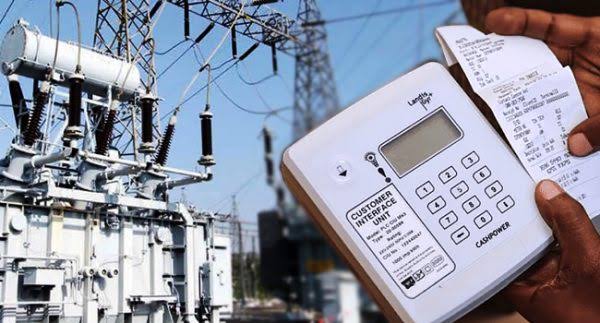State governors have called on the federal government to enforce a “no-meter, no-service” policy for all new electricity connections in the country.
The plea was outlined in the Development of the National Integrated Electricity Policy & Strategic Implementation Plan: Policy Recommendations by State Governments to the Federal Ministry of Power document from the Nigeria Governors’ Forum.
In the document, state governments highlighted the critical importance of electricity meters in bridging the significant metering gap, which is essential for the viability of sub-national markets.
The states also argued that State Electricity Regulatory Commissions (SERCs) should have the autonomy to determine the most suitable meter technology, type, and form for deployment within their respective electricity markets.
The document read: “States believe that the provision of electricity meters to close the huge metering gap is a necessary requirement to make sub-national markets viable. However, SERCs in conjunction with the Distribution Licensees should be allowed to determine the meter technology, type and form of meters to be deployed within their states’ electricity markets, taking into consideration the cost of meters, extent of the telecommunications coverage in the State, tariff methodologies adopted by the SERC (fixed tariff, time of use, etc) and metering requirement in urban and rural communities and across customer categories arising from their energy consumption.
“States are of the view that the national electricity policy should mandate an immediate “no-meter, no-service” policy for all new connections, to prevent the metering gap from further increasing.
This is as the states are getting set to eliminate electricity subsidies in their territories as more states gear up to join others in running their different power markets under their own laws.
The document noted that the states have said they would implement different electricity tariffs in their domains.
They made these recommendations based on the enactment of the Electricity Act 2023. The Electricity Act 2023 is a federal law which repeals the Electric Power Sector Reform Act and is the extant legal framework for the Nigeria Electricity Supply Industry.
The EA 2023 establishes a multi-tier electricity market framework comprising a (i) single, wholesale federal electricity market, and (ii) retail sub-national electricity markets. However, both markets are interlinked and interconnected by policies and regulations.
The EA 2023 mandates a transition of regulatory powers from the Nigerian Electricity Regulatory Commission, an agency of the Federal Government, to States Electricity Regulatory Commissions upon states fulfilling the requirements for the transition as stated in the EA 2023.
The governors also charged the Federal Government, to continue settling the N4tn legacy debts in the power sector, stressing that the market liabilities were created by the Federal Government under a single electricity market in NESI.
The Federal Government, through the Federal Ministry of Power, confirmed the receipt of the document on Sunday, as the state governments noted that state governments were now at liberty to make electricity laws.
Commenting on winding down electricity subsidies, the NGF said, “Electricity is a commodity and a product that must be paid for by consumers. The states believe that electricity subsidies and other forms of financial interventions in the power sector by the Federal Government over the last 15 years have been inefficient and ineffective so far.
“Rather than improve the quality and reliability of service, electricity subsidies in the sector have been applied to cover inefficient costs and lack of service by Discos, TCN, Gencos and gas producers across the NESI.
“Moreover, the so-called electricity subsidies benefit only customers who are connected to the national grid and enjoy some form of supply reliability. Millions of households, particularly in underserved and unserved communities, pay more than twice the average true cost of on-grid supply.”
They stated that the 2001 National Electric Policy recommended the restricted use of subsidies for the promotion of universal access to electricity.
“States agree with the retention of this policy,” the governors stated.
They added, “To this end, states recommend that wholesale and retail electricity subsidies to customers and across the NESI value chain are reduced and eventually eliminated over time, except for pre-defined customer categories or in line with national economic growth initiatives.
“Where electricity subsidies are deemed necessary, the states propose a cost-of-service analysis which will be conducted by the state to determine the cost of supply and rising electricity subsidies for each state.
“Where electricity subsidies continue to be implemented as a specific policy of the Federal Government, it must provide funding for the subsidies before implementation.”
In addition, they noted that the method, and criteria for the application of electricity subsidies by the Federal Government should be transparent and precise with a clear regulatory framework to determine the extent of subsidies required and category(ies) of consumers that would be eligible to receive electricity subsidies.
“The FMoP and NERC should also ensure that there should be no discrimination in implementing electricity subsidies, against states and regions, especially states and regions with more efficient electricity markets.
“It should also be noted that continuing electricity subsidies may undermine the viability and sustainability of state electricity markets.
The NGF added that the Federal Government and states should collaborate in determining how any subsidy by the Federal Government is applied within a state electricity market. In this regard, the states propose a joint framework with the Federal Government for administering future electricity subsidies in a state electricity market



